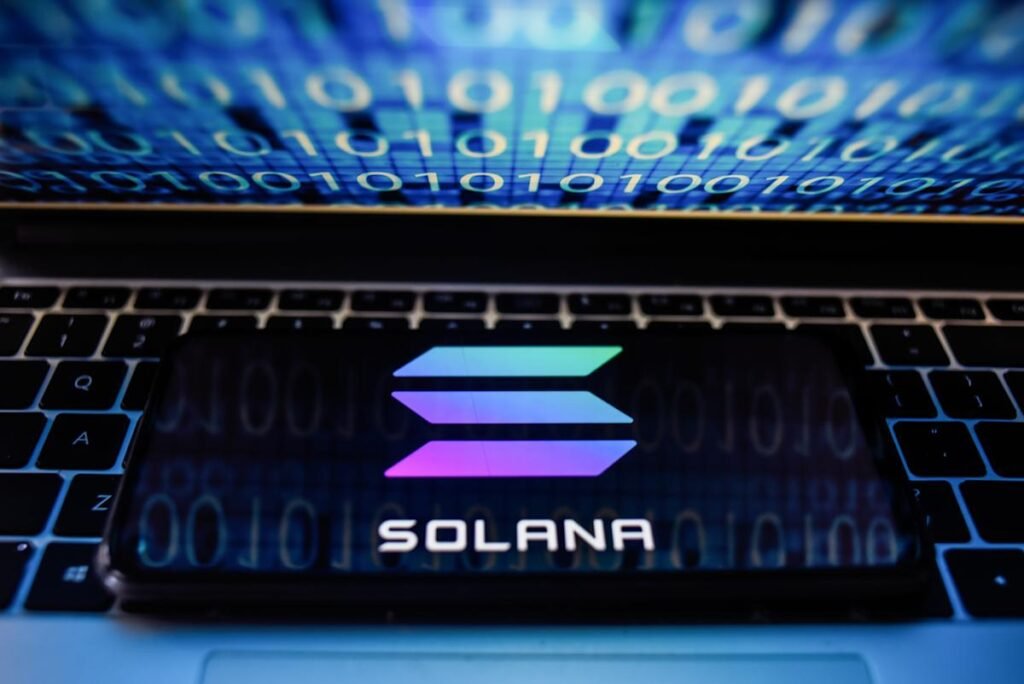Developing a robust Solana SOL investment strategy has become increasingly crucial as the cryptocurrency market continues to evolve and mature. With Solana’s unique proof-of-stake consensus mechanism and lightning-fast transaction capabilities, SOL has emerged as one of the most promising blockchain investments of the decade. Whether you’re a seasoned crypto investor or just beginning your digital asset journey, understanding how to strategically approach SOL investments can significantly impact your portfolio’s performance.
The Solana ecosystem has experienced remarkable growth, with its total value locked (TVL) reaching new heights and an expanding network of decentralized applications (DApps) built on its infrastructure. This growth trajectory makes crafting an effective Solana SOL investment strategy essential for anyone looking to capitalize on the blockchain’s potential while managing inherent cryptocurrency risks.
Understanding Solana’s Fundamentals for Strategic Investment
What Makes Solana Unique in the Crypto Space
Solana distinguishes itself through its innovative proof-of-history (PoH) consensus mechanism, which enables the network to process up to 65,000 transactions per second. This technological advantage positions SOL as a compelling investment opportunity within the broader cryptocurrency ecosystem. The network’s low transaction fees, typically costing fractions of a penny, make it an attractive platform for developers and users alike.
The Solana blockchain’s architecture supports a wide range of applications, from decentralized finance (DeFi) protocols to non-fungible tokens (NFTs) and gaming platforms. This versatility creates multiple revenue streams and use cases that can drive long-term value appreciation for SOL tokens.
Key Metrics Every SOL Investor Should Monitor
Successful SOL investment requires understanding specific metrics that indicate network health and growth potential. Transaction volume, active wallet addresses, and developer activity serve as primary indicators of ecosystem vitality. Additionally, monitoring the total supply of SOL tokens and staking rewards provides insights into tokenomics and potential returns.
The network’s validator count and distribution also play crucial roles in assessing decentralization and security. A healthy validator ecosystem indicates robust network governance and reduced centralization risks, factors that sophisticated investors consider when evaluating long-term SOL positions.
Solana SOL Investment Strategy Frameworks
Dollar-Cost Averaging Approach
Dollar-cost averaging (DCA) represents one of the most accessible and risk-managed approaches to SOL investment. This strategy involves making regular purchases regardless of price fluctuations, effectively reducing the impact of market volatility on your overall position. For SOL investors, implementing a weekly or monthly DCA schedule can help build substantial holdings over time while minimizing the stress of market timing.
The DCA approach works particularly well with SOL due to the cryptocurrency’s historical volatility patterns. By spreading purchases across different market conditions, investors can achieve a more favorable average cost basis compared to attempting to time market entries and exits.
Technical Analysis for SOL Trading
Technical analysis provides valuable insights for active SOL traders seeking to optimize entry and exit points. Key indicators such as moving averages, relative strength index (RSI), and volume analysis can help identify potential price movements and trend reversals. Understanding support and resistance levels specific to SOL’s price action enables more informed trading decisions.
Chart patterns like ascending triangles, head and shoulders formations, and breakout scenarios often precede significant SOL price movements. Combining multiple technical indicators creates a more comprehensive trading framework that can improve success rates for active SOL investment strategies.
Fundamental Analysis Considerations
Beyond technical indicators, fundamental analysis examines the underlying factors driving SOL’s value proposition. This includes evaluating network adoption rates, partnership announcements, protocol upgrades, and competitive positioning within the blockchain space. Fundamental analysis helps investors understand whether SOL’s current valuation reflects its intrinsic value and growth potential.
Monitoring Solana’s roadmap updates, ecosystem developments, and regulatory compliance initiatives provides crucial context for long-term investment decisions. These factors often influence SOL’s price movements more significantly than short-term market sentiment fluctuations.
Risk Management in SOL Investment

Portfolio Allocation Strategies
Effective risk management begins with appropriate position sizing within your overall investment portfolio. Financial advisors typically recommend allocating no more than 5-10% of total investment capital to high-risk assets like cryptocurrencies, including SOL. This allocation should align with your risk tolerance, investment timeline, and overall financial goals.
Diversification within cryptocurrency holdings also plays a crucial role in risk management. While SOL may represent a significant portion of your crypto allocation, maintaining exposure to other established cryptocurrencies like Bitcoin and Ethereum can help balance portfolio volatility and reduce concentration risk.
Setting Stop-Loss and Take-Profit Levels
Implementing systematic exit strategies protects capital and locks in profits during favorable market conditions. Stop-loss orders can limit downside exposure by automatically selling SOL positions when prices fall below predetermined levels. Conversely, take-profit orders ensure you capture gains when SOL reaches specific price targets.
The volatility of SOL requires careful consideration when setting these levels. Stop-loss orders placed too close to current prices may trigger prematurely during normal market fluctuations, while distant stop-losses may not provide adequate protection during significant downturns.
Managing Emotional Decision-Making
Cryptocurrency markets, including SOL, are known for extreme volatility that can trigger emotional responses leading to poor investment decisions. Developing a disciplined approach to SOL investment requires establishing clear rules for buying, selling, and holding positions regardless of market sentiment.
Creating a written investment plan that outlines your SOL strategy, including entry criteria, exit strategies, and risk management protocols, helps maintain objectivity during turbulent market periods. Regular portfolio reviews and strategy adjustments based on changing market conditions ensure your approach remains relevant and effective.
Advanced SOL Investment Techniques
Staking Strategies for Passive Income
Solana’s proof-of-stake mechanism allows SOL holders to earn passive income through staking rewards. Current staking yields typically range from 5-8% annually, providing attractive returns for long-term holders. Understanding the mechanics of staking, including validator selection and delegation processes, maximizes earning potential while supporting network security.
Liquid staking solutions offer additional flexibility by allowing investors to stake SOL while maintaining liquidity for other investment opportunities. These platforms provide staking rewards while enabling participation in DeFi protocols and other yield-generating activities within the Solana ecosystem.
DeFi Integration Opportunities
The Solana ecosystem hosts numerous decentralized finance protocols that create additional investment opportunities for SOL holders. Yield farming, liquidity provision, and lending protocols can generate returns that exceed traditional staking rewards, though they also carry additional risks.
Platforms like Raydium, Orca, and Mango Markets offer various DeFi strategies that can complement core SOL holdings. Understanding the risks and rewards of these protocols enables more sophisticated investment approaches that leverage the full Solana ecosystem.
Leveraged Trading Considerations
Advanced traders may consider leveraged SOL positions to amplify potential returns, though this strategy significantly increases risk exposure. Leveraged trading requires sophisticated risk management techniques and should only be attempted by experienced investors with thorough understanding of margin requirements and liquidation risks. Futures contracts and options trading provide additional avenues for SOL exposure while enabling hedge strategies and risk management techniques. These instruments require substantial knowledge and experience to use effectively and safely.
Market Timing and SOL Investment
Identifying Market Cycles
Understanding cryptocurrency market cycles helps optimize SOL investment timing and strategy adjustments. Bitcoin’s halving events, regulatory developments, and macroeconomic factors often drive broader market movements that impact SOL prices. Recognizing these patterns enables more strategic entry and exit decisions.
Historical analysis of SOL’s price movements relative to market cycles provides insights into potential future performance patterns. While past performance doesn’t guarantee future results, understanding cyclical trends helps inform investment strategy adjustments and risk management approaches.
News and Event-Driven Opportunities
Staying informed about Solana ecosystem developments, partnership announcements, and protocol upgrades creates opportunities for strategic investment timing. Major announcements often trigger significant price movements that prepared investors can capitalize on through well-timed position adjustments.
Monitoring social media sentiment, developer activity, and institutional adoption indicators provides early signals of potential market movements. Combining fundamental analysis with technical indicators creates a comprehensive framework for identifying optimal investment opportunities.
Regulatory Impact Assessment
Regulatory developments significantly impact cryptocurrency markets, including SOL prices and investment strategies. Understanding potential regulatory changes and their implications helps investors prepare for various scenarios and adjust strategies accordingly. Monitoring global regulatory trends, government statements, and policy proposals provides crucial context for long-term SOL investment planning. Staying informed about regulatory compliance requirements ensures investment strategies remain viable under changing legal frameworks.
Also Read: Top Altcoins to Watch in 2025: Cardano Solana and BONK’s Future
Building a Long-Term SOL Portfolio

Accumulation Strategies
Long-term SOL investment success often depends on consistent accumulation during various market conditions. Systematic buying programs, whether through DCA or strategic dip-buying, help build substantial positions over time while managing entry price volatility.
Understanding SOL’s supply dynamics, including token release schedules and staking participation rates, informs accumulation timing and strategy adjustments. These factors influence token availability and potential price pressure, creating opportunities for strategic accumulation.
Rebalancing Techniques
Portfolio rebalancing ensures SOL allocations remain aligned with investment objectives and risk tolerance levels. Regular rebalancing captures profits during strong performance periods while adding to positions during market downturns.
Systematic rebalancing approaches, such as monthly or quarterly adjustments, help maintain optimal portfolio composition without emotional decision-making. Understanding when and how to rebalance SOL positions maximizes long-term returns while managing risk exposure.
Exit Strategy Planning
Developing clear exit strategies prevents emotional decision-making during extreme market conditions. Whether planning for profit-taking during bull markets or capital preservation during bear markets, having predetermined exit criteria improves investment outcomes. Partial exit strategies allow investors to capture profits while maintaining exposure to potential future gains. Understanding when and how to implement various exit strategies ensures optimal portfolio management throughout different market cycles.
SOL Investment Tools and Resources
Research and Analysis Platforms
Utilizing comprehensive research platforms enhances SOL investment decision-making through access to real-time data, analysis tools, and market insights. Platforms like CoinGecko, CoinMarketCap, and specialized Solana ecosystem trackers provide essential information for informed investment strategies.
Professional-grade analysis tools offer advanced charting capabilities, technical indicators, and fundamental analysis metrics specifically designed for cryptocurrency investment. These resources enable more sophisticated analysis and strategy development for serious SOL investors.
Portfolio Management Solutions
Dedicated portfolio management tools help track SOL investments, monitor performance, and maintain optimal asset allocation. These platforms often include tax reporting features, rebalancing alerts, and performance analytics that streamline investment management processes. Integration with staking platforms and DeFi protocols provides comprehensive portfolio visibility across all SOL-related investments. Understanding how to leverage these tools maximizes efficiency and effectiveness in SOL investment management.
Security and Storage Best Practices
Proper security measures protect SOL investments from theft and loss while maintaining accessibility for trading and staking activities. Hardware wallets, multi-signature solutions, and secure backup procedures form the foundation of cryptocurrency security best practices.
Understanding the trade-offs between security and accessibility helps investors choose appropriate storage solutions based on their investment strategy and risk tolerance. Implementing robust security measures protects long-term investment success while enabling flexible portfolio management.
Conclusion
Developing a successful Solana SOL investment strategy requires combining fundamental understanding, technical analysis, and disciplined risk management. The strategies outlined in this guide provide a comprehensive framework for approaching SOL investments across different market conditions and investment timelines.
Remember that cryptocurrency investing involves significant risks, and SOL’s price volatility requires careful position sizing and risk management. Whether you choose dollar-cost averaging, active trading, or long-term holding strategies, maintaining discipline and staying informed about ecosystem developments will improve your investment outcomes.
Ready to implement your Solana SOL investment strategy? Start by defining your investment goals, risk tolerance, and timeline. Begin with small positions while you develop experience and confidence in your approach. The Solana ecosystem continues evolving rapidly, creating new opportunities for prepared investors who understand both the potential rewards and inherent risks of SOL investment.
FAQs
What is the best Solana SOL investment strategy for beginners?
For beginners, a dollar-cost averaging approach combined with basic staking represents the optimal Solana SOL investment strategy. Start by investing small amounts regularly, regardless of price fluctuations, and stake your SOL tokens to earn passive income. This approach minimizes risk while building long-term exposure to SOL’s growth potential.
How much should I allocate to SOL in my investment portfolio?
Most financial advisors recommend allocating 5-10% of your total investment portfolio to cryptocurrencies, including SOL. Within your crypto allocation, SOL might represent 10-30% depending on your risk tolerance and belief in Solana’s long-term potential. Never invest more than you can afford to lose completely.
What are the main risks of investing in SOL?
Primary risks include extreme price volatility, regulatory uncertainty, technical vulnerabilities, and competition from other blockchain platforms. SOL’s price can fluctuate dramatically in short periods, and regulatory changes could significantly impact its value. Network outages or security breaches also pose risks to SOL investments.
Should I stake my SOL tokens?
Staking SOL tokens generally makes sense for long-term holders as it provides passive income (typically 5-8% annually) while supporting network security. However, staked tokens may have unbonding periods, reducing liquidity for active trading. Consider your investment timeline and strategy when deciding whether to stake.
How do I know when to sell my SOL investments?
Selling decisions should be based on predetermined criteria rather than emotions. Consider taking profits when SOL reaches specific price targets, rebalancing when allocations exceed target percentages, or selling if fundamental factors change significantly. Having a clear exit strategy before investing helps avoid emotional decision-making.


